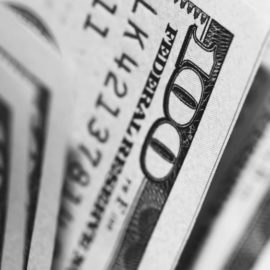

This article is an excerpt from the Shortform summary of "The Smartest Guys in the Room" by Bethany McLean and Peter Elkind. Shortform has the world's best summaries of books you should be reading.
Like this article? Sign up for a free trial here .
What was Enron Broadband? What did they do, and how did it affect the Enron collapse?
Enron Broadband was a branch of Enron that was meant to be a major profit source. Instead, Enron Broadband quickly became untenable. But that didn’t stop Enron from claiming that Enron Broadband made money.
What Was Enron Broadband
The bad practices were begun to hide losses and prop up stock price. As the fundamental core of Enron failed to yield actual revenue, Enron felt forced to expand its deception, putting off its day of reckoning to later.
Enron’s Two Big (Failed) Bets
All the financial machinations around SPEs were meant as temporary measures while Enron bet big on its next two major businesses. Both of them, however, sustained massive losses.
Enron Broadband
In 1999, Internet stocks were overheated. Put “broadband” in your company somewhere, and the stock price would rise without tying to fundamentals. This was the foundation of Enron Broadband.
- Skilling calculated that every $1 invested in broadband would pay back $20 in market capitalization.
Skilling promised such large returns that the division was strongly pressured to make deals happen. They burnt a lot of money ($500MM a year) trying to find a valuable business plan.
The larger vision was that broadband might ultimately become a tradable commodity, like natural gas or oil. But this vision failed to meet reality:
- Physical technicalities got in the way. Internet lines were set up so sharing bandwidth wasn’t possible. In one sense, internet pipes were parallel pipes that never intersected.
- Enron promised that it was inventing new routing technology that would enable bandwidth sharing, but this never made it out of the lab.
- Meanwhile, the incumbent telephone companies were uninterested in hooking into Enron’s market. This would turn bandwidth into a commodity that would cut into their control of markets.
Enron even began partnering with Blockbuster to build content streaming services. Its rosy projections made napkin-calculations on how many cities they would enter, the market share they’d have, and the # of movies users would buy. In classic Enron fashion, it booked $110 million in profits from this deal immediately, before anything had materialized.
The reality of executing on content streaming was difficult. The content owners had massive leverage and were wary of entering a distribution medium they couldn’t control. Streaming from the Internet to the TV required expensive special boxes. And incumbent DSL providers controlled access to the last mile and were tough in negotiations. Enron Broadband didn’t even seem possible.
The trials were tiny – 300 households involved – and the ultimate real sales from this were laughable, in the dozens of dollars. An Enron executive handed the business manager $5 and said “there, I doubled your revenue.”
The deal fell apart months after announcement, with Enron claiming Blockbuster hadn’t lined up content providers like promised.
Even though the failed deal should have been written down as a loss, Enron reasoned that it should actually be a gain – Enron would no longer have to share the proceeds!
Unfortunately, both Enron Energy Services and Enron Broadband bets were off the mark. Enron spent billions on unprofitable projects. This put Enron in an impossible position – having spent all that money and raised expectations, there was no room for failure. They could only hide the massive losses through more machinations.
Enron Broadband was undoubtedly a failure. Along with other areas of the company, Enron Broadband was an unsustainable business venture with bad business practices.

———End of Preview———
Like what you just read? Read the rest of the world's best summary of Bethany McLean and Peter Elkind's "The Smartest Guys in the Room" at Shortform .
Here's what you'll find in our full The Smartest Guys in the Room summary :
- How Enron rose to become one of the world's most promising companies
- How Enron management's greed led it to start cutting corners
- The critical failures that crashed Enron's house of cards to the ground






